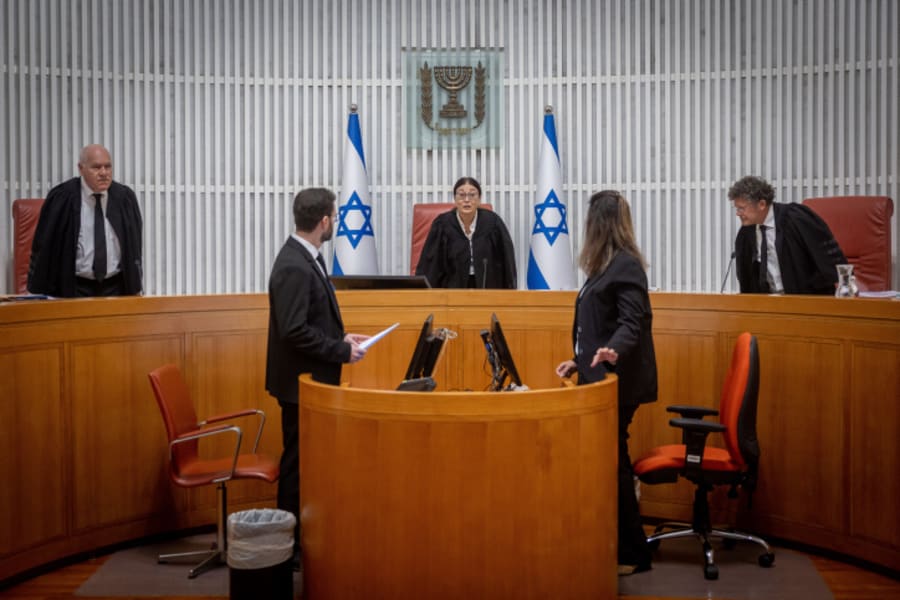High Court rejects government petition to delay Reasonableness Law hearing
While hearing set for Sept. 12, request to delay deadline for arguments was granted

Israel’s High Court of Justice on Tuesday rejected a request by the government to delay the fateful hearing on the Reasonableness Law, which will still take place on Sept. 12, according to Israeli media reports.
The court justified its decision to by pointing to calendar constraints, which include the upcoming period of High Holy Days in September and October, as well as the retirement of Court President Esther Hayut and Justice Anat Baron in mid-October.
The government’s attorney Ilan Bombach, Justice Minister Yariv Levin and Prime Minister Benjamin Netanyahu had appealed to the court to postpone the hearing by 21 days to have more time to prepare.
"This is a response to a great many petitions that have been submitted, and according to the conditional order, the claims in all of them should be addressed," Bombach explained the request in an interview with Ynet news.
He added that "a comprehensive comparative study of what is happening in other countries should be conducted. A thorough and comprehensive treatment is required, so we will ask for the postponement."
The court granted a separate request to postpone the deadline for arguments against petitions by six days and moved up the hearing so Bombach can attend his son's wedding that same day.
Those petitioning against the law will also receive more time to submit their main arguments.
The Reasonableness Standard Bill passed into law in the Knesset plenum on July 24. Following the second reading, the opposition announced it would boycott the final vote and the bill passed with 64 votes in favor and 0 votes against.
At the beginning of August, the High Court announced that, for the first time, all 15 Supreme Court justices would convene in a panel to discuss the Basic Law amendment.
Several NGOs, including the Movement for Quality Government, filed petitions regarding the Reasonableness Standard Law. The Yesh Atid political party, headed by opposition leader Yair Lapid, also filed a petition against the law.
The upcoming hearing could lead to a so-called constitutional crisis if the court strikes down an amendment, pitting the Supreme Court against the government.
Netanyahu has so far neglected to answer if he would abide by such a ruling.
“I think we have to follow two rules. One is: Israeli governments abide by the decisions of the Supreme Court, and at the same time the Supreme Court respects the Basic Laws, which are the closest thing we have to a constitution, I think we should keep both principles," the prime minister told NBC.

The All Israel News Staff is a team of journalists in Israel.
You might also like to read this:

















